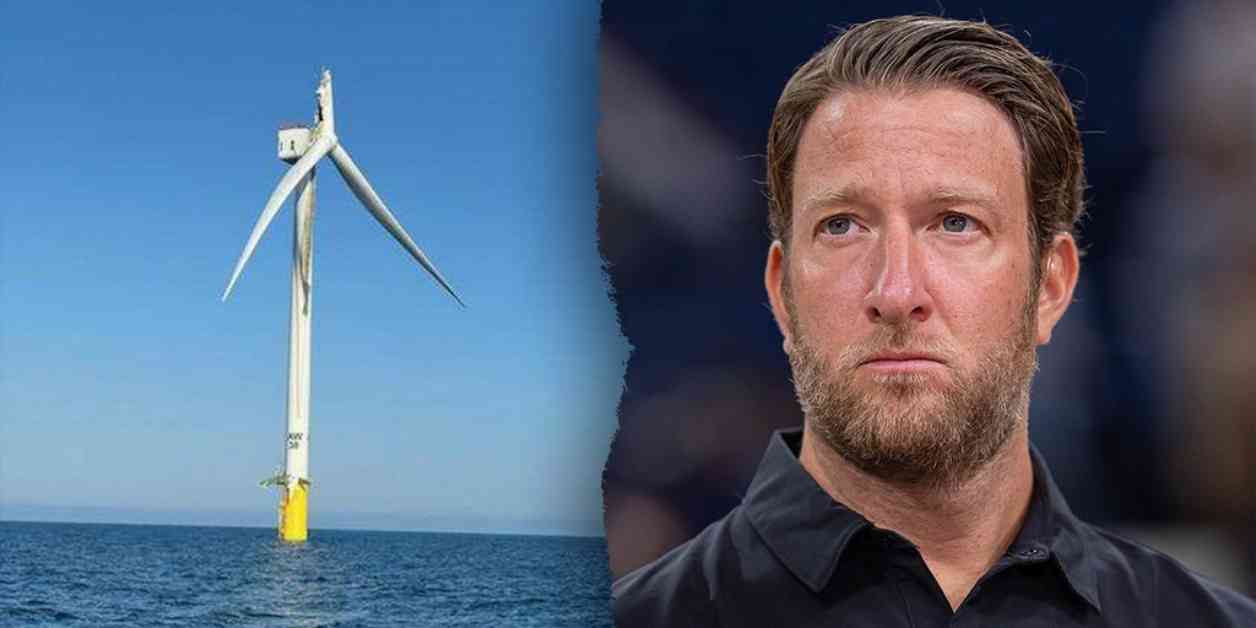Barstool Sports President and CEO Dave Portnoy recently voiced his concerns about the Nantucket Wind Farm after an offshore windmill blade broke and scattered nonbiodegradable fiberglass pieces into the water, leading to beach closures in Nantucket. The Nantucket harbormaster had to temporarily shut down six beaches in the town as fiberglass pieces washed ashore, prompting a warning for beachgoers to wear protective footwear.
Vineyard Wind, the company behind the wind farms off the coast of Massachusetts, confirmed that a blade from one of their turbines had snapped, causing a halt in power production. While the company stated that most of the blade was still attached to the turbine, a photo obtained by Fox News Digital showed otherwise.
As a Nantucket homeowner, Dave Portnoy expressed his disappointment in the incident, suggesting that Vineyard Wind should face consequences for their negligence. He proposed a “one-strike you’re out policy” for the company and recommended refunds for individuals who had rented houses in Nantucket while the beaches were closed.
Jerry Leeman, CEO of the New England Fishermen’s Stewardship Association (NEFSA), also shared his views on the environmental impact of the incident. He highlighted the dangers of fiberglass shards to marine life, particularly endangered species like whales, dolphins, and porpoises. The slow-rolling disaster posed a serious threat to fishery sustainability, according to Leeman.
Vineyard Wind responded by deploying service vessels to recover blade pieces from the ocean and clean up the non-toxic debris that washed up on Nantucket beaches. The company emphasized its collaboration with the Bureau of Safety and Environmental Enforcement (BSEE) to ensure compliance with safety measures and support debris recovery efforts.
Offshore wind farming has been a contentious issue under the Biden administration’s push for green energy goals by 2030. Critics like Cindy Zipf, executive director of Clean Ocean Action, have raised concerns about the lack of transparency and scientific review in approving wind projects, highlighting potential risks to marine life and habitats.
NEFSA and Responsible Offshore Development Alliance criticized the Bureau of Ocean Energy Management’s plans to lease 2 million acres of ocean in Maine for more offshore wind development. The rushed approach to green energy projects without sufficient scientific backing and stakeholder consultation has sparked debate within the fishing industry and environmental advocacy groups.
In conclusion, the incident at the Nantucket Wind Farm serves as a stark reminder of the potential risks associated with offshore wind projects and the importance of thorough environmental assessments and safety measures. Stakeholders must work together to balance renewable energy goals with the protection of marine ecosystems and sustainable fishing practices.





















